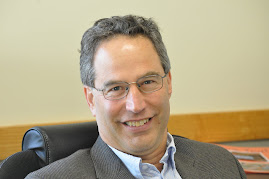
Recently, I glanced at an article that I think was in the New York Times business section. The article was contemplating the changes that technology are making to the way we view the world. Anyway, what I started to think about was the following: Cosmological discoveries since Galileo have continued to indicate that humans are less significant than it appears when looking at the night sky. Ptolemy had the planets and star revolve in perfect circles around the center of the universe, a stable Earth. Copernicus and Galileo proved that the Earth actually revolved around the sun. Soon it became clear that that our solar system was part of a larger galaxy, which was part of a bigger universe, which may be part of the multiverse. We now know that many planets exist around many stars and many Earth-like planets revolve around many sun-like stars. The scientific consensus now allows that life is not unique to Earth but exists throughout the cosmos.
What is the consequence of these discoveries on the human psyche? Well, we should be more humble that we are not the center of the universe. Drawing an analogy to the preadolescent who often thinks he is the center of the universe might be helpful. The typical 6th, 7th and 8th grader rarely is grateful for the act of others (especially parents), often expects that others (especially parents) will clean up their literal and figurative messes, and can be seen as relatively selfish. As this child grows and matures, they become more aware of their actions and their effect on others. They work to improve their own and other people’s lots. I hope a similar evolution is happening to our species. We have become more aware of the effect our actions have on the ecosystem, we are working to clean up our messes (the BP oil spill to the contrary) and have more empathy for the suffering of others.
The computer revolution threatens to psychically put humans back at the center of the universe. Think of all the time we spend alone in front of screen doing what we want, when we want. (I can take a break anytime I want from writing to play Scramble on Facebook, either solitaire, against strangers or against my friends.) Speaking of being able to do what I want, when I want--I can now control my personal environment in ways I could not five years ago. I watch any television show whenever I desire, either on my DVR or my computer. (And I can fast forward through the commercials!) Further, through Facebook, Twitter, and Foursquare I can advertise to my friends, real and virtual, my thoughts, my whereabouts and my activities, no matter how trivial at any time and all the time. I wonder what effects this person-centrism causes. Might it not decrease empathy? Might it not delay autonomy? Will it further delay the onset of adulthood? (See the New York Times Magazine article that identifies a new developmental stage—emerging adulthood. http://www.nytimes.com/2010/08/22/magazine/22Adulthood-t.html?pagewanted=all.) It must add to an unwarranted feeling of self-importance which cannot be to the good.
At Duke School, where we are striving to prepare the next generation of problem solvers, we must help our students realize they are not the center of the universe and the world does not revolve around them. We need them to understand that other people’s problems are their problems and making the world better for others is a greater good. We need to teach them to use new technologies without becoming a captive of them. We want them to see their place in the cosmos and the contributions they can make to their universe. It is a tough task.

